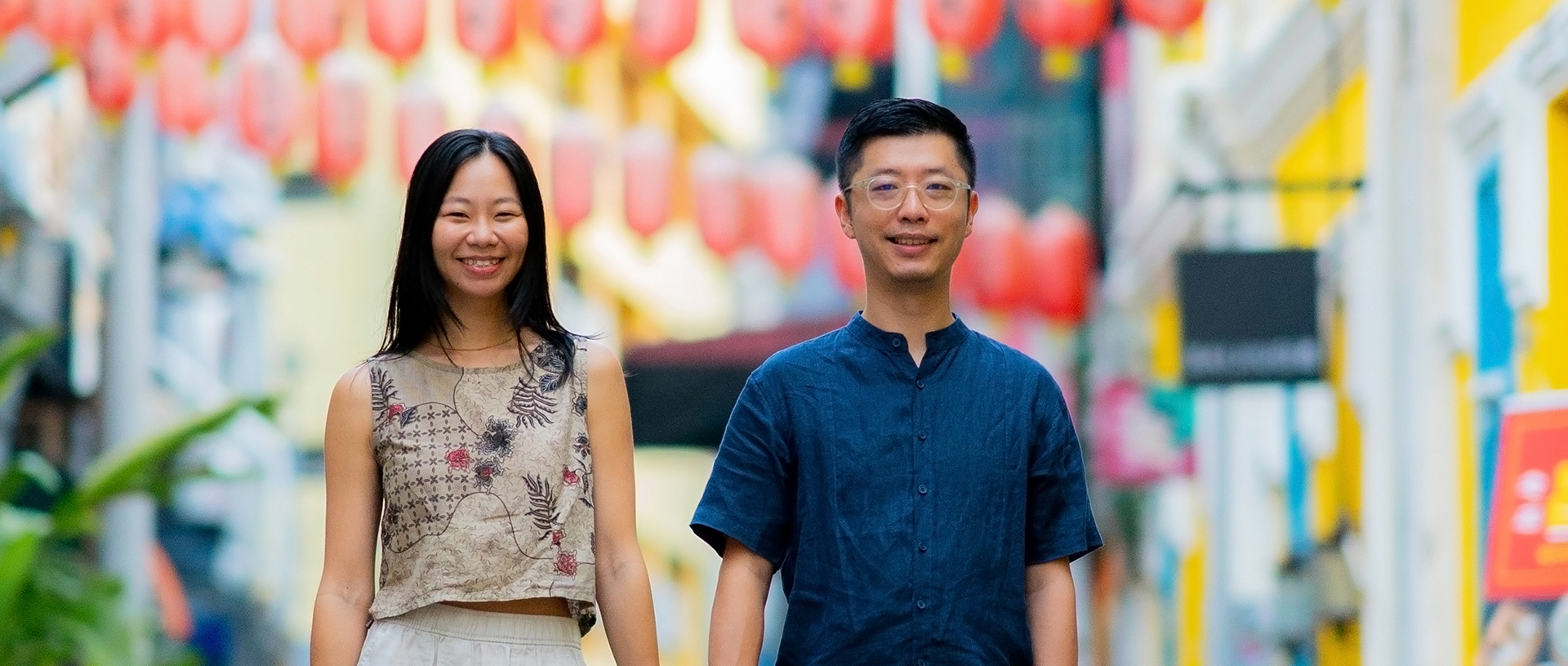
“People jokingly call us the ‘No Sunday, No Sermon Church.’” There’s a smile on the faces of Mike (MAT ’19) and Viola Wu (MAT ’19), church planters and pastors of The Journey in Kuala Lumpur, as they open up about their innovative ministry model. Formally launched in 2022, The Journey is a community with curiosity at its heart—where wrestling with Scripture with a genuine openness to the tough questions is a cornerstone value. And no, the Wus have no plans to start a Sunday service.
“You’re not really a church, right?” It’s a question they’re often asked, and Mike and Viola relish the conversations about faith, church, and God that come with their answer. “Isn’t that interesting?” Mike often says in response. “If our church was nothing but an express one-hour service on a Sunday morning, with worship songs, a sermon for 20 minutes, communion, and a closing worship song—if our church did nothing else but one hour on Sunday—you would think that was a church.” The Journey, however, meets throughout the week, in groups over home-cooked meals or online, where they dive into the Scriptures with one another. The church also hosts regular worship nights and organizes opportunities to serve the local community, particularly with Kuala Lumpur’s refugees. “We have all that,” Mike says, “but you think that is a church and this is not. I usually pause and say, ‘Isn’t that interesting?’ And that’s usually when people go, ‘Ah . . .’”
Planting a church in Kuala Lumpur took the Wus by surprise. Both from Australia, Mike and Viola had hopes of pastoring somewhere on the US West Coast after they graduated from Fuller. But as they discerned their next steps, they found God had other plans. “We both felt the Lord impress Asia on our hearts, somewhat to our dismay,” Mike laughs.
When God seemed to be leading them to Kuala Lumpur in particular, Mike and Viola visited Malaysia for the first time. Mike says, “I’d never been to another city, where the first time I stepped on the soil, I felt in my spirit, ‘The harvest is plentiful but the workers are few.’ I know this is true of most cities in the world, but I’d never felt it in my spirit that way.”
Upon moving to Malaysia, the couple served at a large church for a few years, while they set about their plans to church plant. Throughout the process, Viola says they were intentional about remembering that “churches shouldn’t be competitors but rather colaborers with each other.” They understood that no single church can be “everything to everyone,” so their guiding question was, “What could we be doing that complements what the body of Christ is already doing?” They came to a realization that their role was to form a church specifically welcoming to the unchurched and the dechurched.
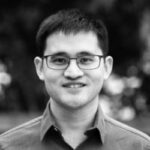
Jerome Blanco is editor in chief of FULLER magazine and FULLER studio.
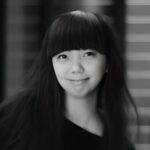
Anna Leong is an independent photographer based in Kuala Lumpur, Malaysia.
“People jokingly call us the ‘No Sunday, No Sermon Church.’” There’s a smile on the faces of Mike (MAT ’19) and Viola Wu (MAT ’19), church planters and pastors of The Journey in Kuala Lumpur, as they open up about their innovative ministry model. Formally launched in 2022, The Journey is a community with curiosity at its heart—where wrestling with Scripture with a genuine openness to the tough questions is a cornerstone value. And no, the Wus have no plans to start a Sunday service.
“You’re not really a church, right?” It’s a question they’re often asked, and Mike and Viola relish the conversations about faith, church, and God that come with their answer. “Isn’t that interesting?” Mike often says in response. “If our church was nothing but an express one-hour service on a Sunday morning, with worship songs, a sermon for 20 minutes, communion, and a closing worship song—if our church did nothing else but one hour on Sunday—you would think that was a church.” The Journey, however, meets throughout the week, in groups over home-cooked meals or online, where they dive into the Scriptures with one another. The church also hosts regular worship nights and organizes opportunities to serve the local community, particularly with Kuala Lumpur’s refugees. “We have all that,” Mike says, “but you think that is a church and this is not. I usually pause and say, ‘Isn’t that interesting?’ And that’s usually when people go, ‘Ah . . .’”
Planting a church in Kuala Lumpur took the Wus by surprise. Both from Australia, Mike and Viola had hopes of pastoring somewhere on the US West Coast after they graduated from Fuller. But as they discerned their next steps, they found God had other plans. “We both felt the Lord impress Asia on our hearts, somewhat to our dismay,” Mike laughs.
When God seemed to be leading them to Kuala Lumpur in particular, Mike and Viola visited Malaysia for the first time. Mike says, “I’d never been to another city, where the first time I stepped on the soil, I felt in my spirit, ‘The harvest is plentiful but the workers are few.’ I know this is true of most cities in the world, but I’d never felt it in my spirit that way.”
Upon moving to Malaysia, the couple served at a large church for a few years, while they set about their plans to church plant. Throughout the process, Viola says they were intentional about remembering that “churches shouldn’t be competitors but rather colaborers with each other.” They understood that no single church can be “everything to everyone,” so their guiding question was, “What could we be doing that complements what the body of Christ is already doing?” They came to a realization that their role was to form a church specifically welcoming to the unchurched and the dechurched.
Jerome Blanco is editor in chief of FULLER magazine and FULLER studio.
Anna Leong is an independent photographer based in Kuala Lumpur, Malaysia.
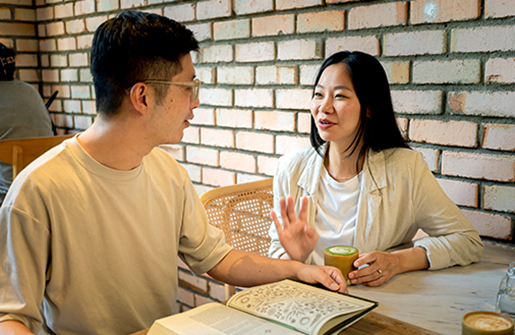

“Greater Kuala Lumpur has eight and a half million people, and on the best of Sundays, half a million people are in church,” explains Mike. “So, on the best of Sundays, eight million people, for whatever reason, can’t even be bothered to poke their heads into a church. That bothered us. We felt the Spirit leading us to do something.”
Mike, who is the first Christian in his family in at least 200 years, felt it important to create a space that would be open to the unchurched—especially in a country where only nine percent of the population is Christian. Similarly, Viola’s experience of working in ministry for over a decade gave her a particular heart for those who’d once attended church but later walked away.
After undergoing her own healing after years of ministry, Viola says, “I realized my experience of having some brokenness from being in the church is not uncommon, and a lot of unchurched or dechurched people are dechurched because of what they’ve experienced at church.” She thinks about how easy it would’ve been for her to have left the church entirely and how this must be the case for countless people who’ve endured church hurt. “I want to bring empathy into this space and to help people who want to be part of a Christian community again but are carrying baggage or trauma of some sort.”
The Journey needed to be a church for those at any point on their walk of faith—just as its name suggests. It needed to become a community where people could safely and openly engage with their questions about faith and the Bible. Viola says, “We’re all on a spiritual pilgrimage, whether we’re Christian or not.”
Central to The Journey’s model are its Bible reading groups. “For the longest time, Scripture was read aloud, in community, discussed, and wrestled through,” Mike says. He and Viola remind us that individual, personal readings of Scripture—while holding an important place—are a relatively new development that came about many years after the printing press was invented in the 1400s. For centuries before that, Scripture was read aloud, together, side by side in community. The Journey wants to return to this shared approach.
Mike and Viola make a key distinction between Bible reading and Bible study, since traditional “Bible study” often involves a specified leader asking leading questions, which are often meant to lead to predetermined theological conclusions. In an Asian context in particular, in which rote education and a posture of “doing as you’re told” is the norm, such approaches to the Bible don’t allow for many of the questions and explorations readers may bring to it. Viola says this “hinders the nurturing of genuine curiosity.” Such ways of reading the Bible can then focus too much on morality—on “what is right, what is wrong; what I should do, what I should not do.” Mike says, “That’s not a bad start, but hopefully, over time, we shift from morality to maturity.” The Wus say we need to recognize that the Bible isn’t often as clear-cut or black and white as we may want it to be. Instead, they say, a lot of it is grey, but “God delights in inviting us to wrestle through the greys of Scripture and of life.”
At The Journey’s gatherings, they take turns reading Scripture out loud, and then have a 75-minute discussion around three simple questions: Was there anything you found interesting? Was there anything you want to clarify or ask questions about? Did something touch your heart? These questions have made all the difference for many.
At one meeting, they read Genesis 3, and Mike mused, “I’ve wondered, ‘Why does God ask Adam, “Where are you?”’ Isn’t God supposed to know where everyone is at all times?” It came as a surprise to some to hear Mike ask a question, because wasn’t he the pastor? In a cultural context where questions can often mean doubting one’s faith, The Journey offers an open and safe space that lets people jump into the text—and their faith—in a refreshing new way.
As Mike and Viola quickly discovered, it turns out that a simple missing ingredient in many churches is curiosity.
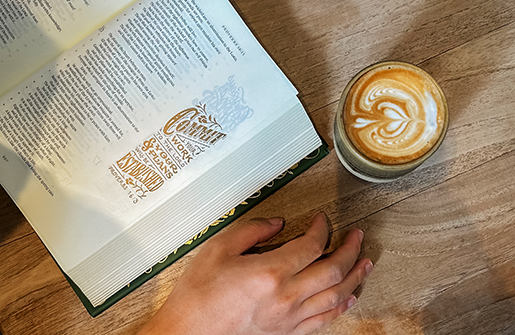

Viola tells a story of a woman who’d left church in her early 20s. She’d recently been growing curious about God again, and when The Journey appeared on her Instagram’s suggested posts, she followed the account. She liked posts here and there for months until she finally mustered up the courage to visit. It’d been 12 years since she’d attended church. (Instagram, Viola shares, has been one of their largest sources of growth.) The woman’s story isn’t uncommon at The Journey. One of their regulars hadn’t been to church in five years, another eight, and another nine. “It really makes our hearts sing,” Viola says, “to know we’re a safe enough space for people to come back.”
With over 60 regulars a little over a year after their launch, Christian friends of Mike and Viola often ask, “How do you get non-Christians to read the Bible?” The answer has been surprisingly simple: “They’re curious,” Mike says. “And we’re a safe space where they won’t be judged, and where there’s no pressure to become a Christian.”
A pastor friend joked that the Wus have the fastest growing church in Malaysia. But they insist it isn’t about numbers. If amassing a high number of attendees were the end goal, Mike says, a church can achieve that with the right strategies and marketing, “and, dare I say, it wouldn’t even need God.” But instead of numbers, Mike says, “The name of the game is faithfulness.”
He gives the example of the woman at the well: “If I were Jesus, about to start this global ministry movement, spending half a day with some random woman at a well would be such a waste of time. But Jesus reminds us of what meaningful ministry looks like.” The Wus have found that sometimes what is “highly inefficient” by the world’s standards is what is most “effective in loving people in the kingdom of God.”
The Journey is committed to anyone who walks through the door, with curiosity and an open heart. Mike and Viola do their best to create a space of welcome and a place of healing. Whatever happens next, Viola says, “We hope it’s not because of our wisdom but by the grace of God and the church’s genuine love and curiosity to seek God on the journey.”
Mike says, in the end, it’s ultimately out of their control who chooses to come to church and who chooses to follow Jesus. “What is in our control is how well we love the people who actually do show up—how we lean into those who walk through the door, becoming part of their journey, inviting their voices to the table, listening to their longings and losses, and discerning together what God is doing.”
Soong-Chan Rah, Robert Boyd Munger Professor of Evangelism, explores how “de-construction” and “re-construction” can help guide the church toward faithful expressions of evangelism in today’s world.